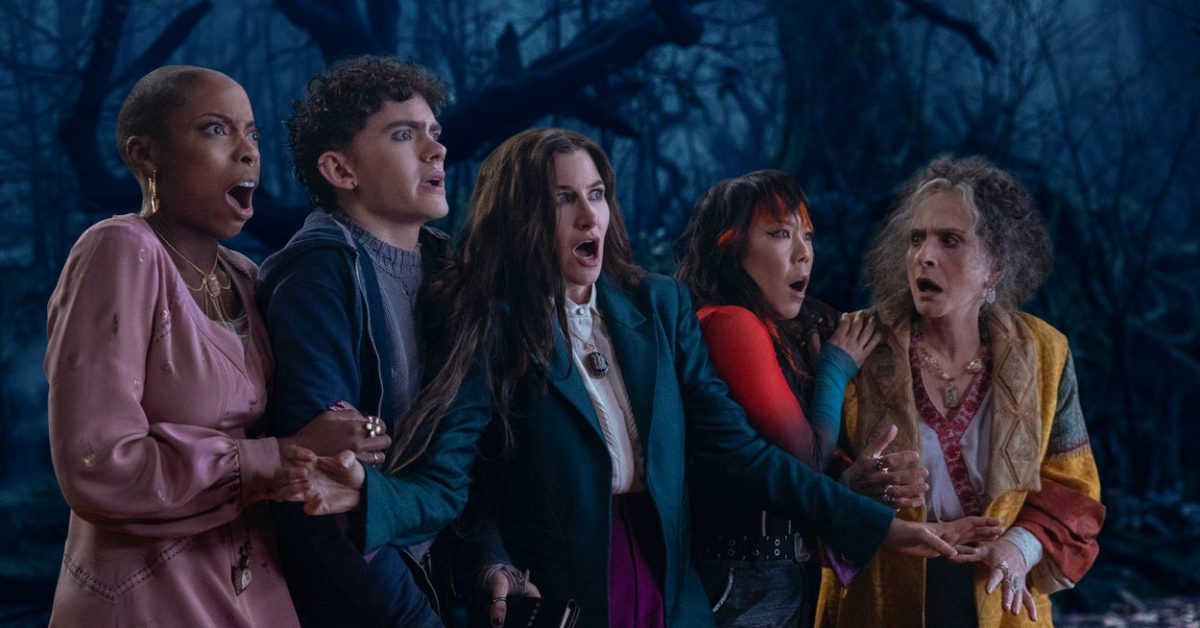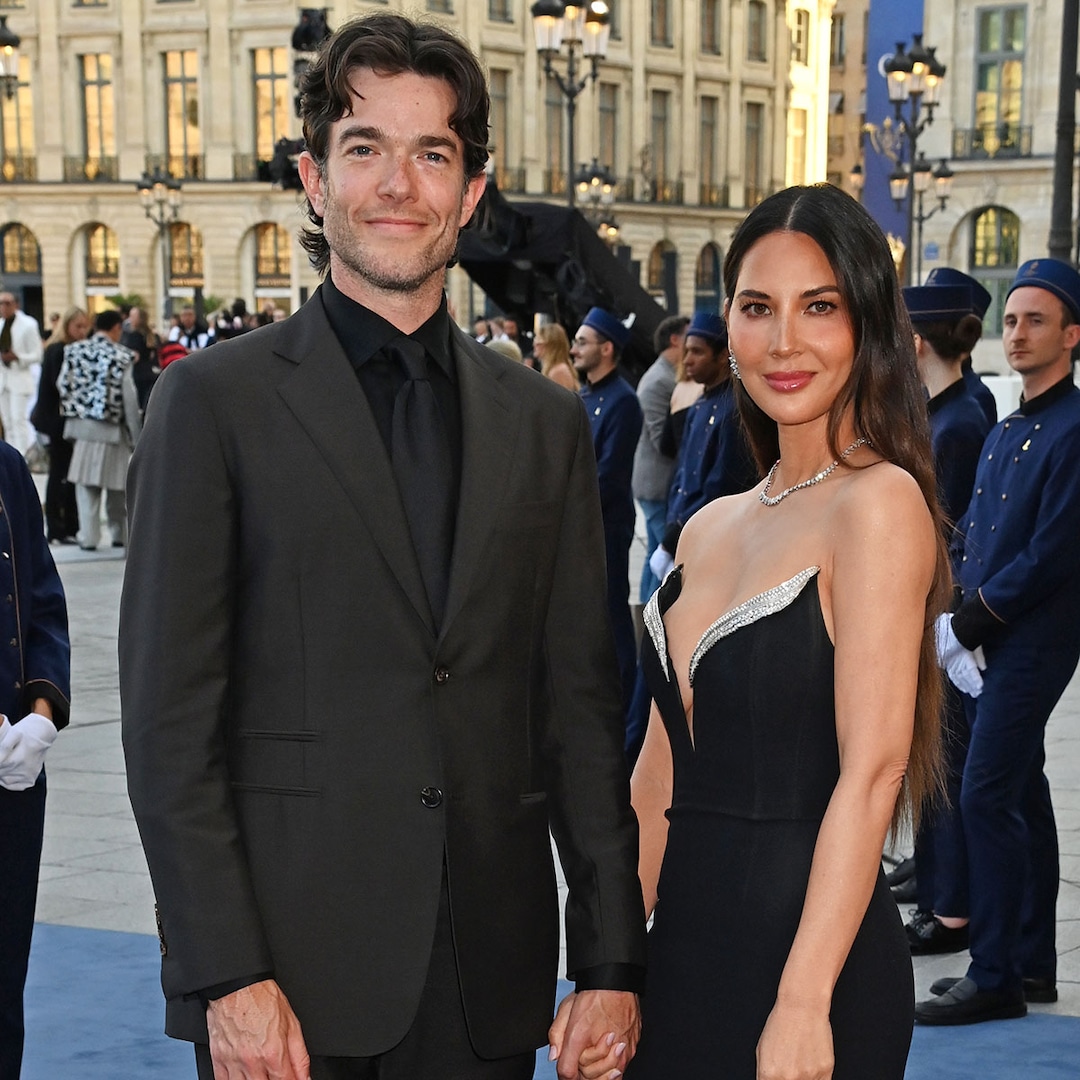
Voodoo Macbeth Stars and Producer Discuss Orson Welles and Rose McClendon
Dec 15, 2022
Legends tend to obscure the truth, obfuscating the countless forgotten but real people behind the scenes who made the myths we love. Such is the case with the cinematic maverick and iconic genius Orson Welles. Before he was elevated to reverence and other holy nouns, prior to Citizen Kane and even the infamous radio broadcast of War of the Worlds, Welles directed one of the most important theater productions of all time.
At the age of 20, after already becoming a successful stage actor, radio performer, and writer, Welles was chosen to direct an adaptation of Macbeth in Harlem. If anyone knows anything about the play, it’s as a footnote in Welles’ career, but the new film Voodoo Macbeth changes the narrative. Elaborating on not just Welles’ contribution but the many important yet unremembered men and women, including the great Rose McClendon, Voodoo Macbeth is a bold experiment offscreen and an entertaining character study onscreen. Jewell Wilson Bridges took on the role of Welles, Inger Tudor played McClendon, and Jason Phillips produced; they spoke with MovieWeb about the fascinating USC project with 10 directors.
MOVIEWEB VIDEO OF THE DAY
A Bit About Voodoo Macbeth
Lightyear Entertainment
“By all odds my great success in my life was that play.” This was what Welles himself told Leslie Megahey in the 1982 BBC project Arena: The Orson Welles Story. “Because the opening night, there were five blocks in which all traffic was stopped. You couldn’t get near the theater in Harlem. Everybody who was anybody in the Black or white world was there. And when the play ended there were so many curtain calls that finally they left the curtain open, and the audience came up on the stage to congratulate the actors. And that was, that was magical.”
Voodoo Macbeth was a 1935 project of the Negro Theatre Unit in New York, one of the chapters established by the Federal Theatre Project under the Works Project Administration during the Great Depression. The essential idea was to provide economic relief for artists and stimulate the theater industry, one of the many elements of the New Deal which helped people survive during financial collapse. It’s astonishing that, nearly 90 years after the federal funding of artists, that no such financial incentives from the U.S. government are in place today, something which differs from almost every single other industrialized nation.
The New York Unit based in Harlem was led by Rose McClendon, a great stage performer and producer who died young of pneumonia before she could experience the massive cultural success of Voodoo Macbeth, a variation on Shakespeare’s play with an all-Black cast of 150 people in a fantastical Haitian setting. McClendon and Welles were very different people, and Welles notoriously had enough hot air to inflate a bouncy castle, but they both knew that the massive production was much more important than their individual wills, and their success led to a sold-out, 4,000-mile tour that integrated audiences for the first time in many places.
Jason Phillips on Producing Macbeth with 10 Directors
Lightyear Entertainment
Like the play it’s about, the Voodoo Macbeth film required everyone involved to put their own egos aside. That’s because, as part of the USC School of Cinematic Arts and Warner Brothers’ ongoing experiment, Voodoo Macbeth is communally made, without the usual hierarchies or auteur theories of most top-down productions. With 10 directors, eight writers, three producers, and a large ensemble cast, it’s an unusual project, to say the least, but is surprisingly seamless and coherent.
Related: 6 Classic Plays That Need Movie Remakes
“We were tasked with keeping it consistent from start to finish,” said producer Jason Phillips. “One thing that really helped was having department heads that were singular. So just like a regular film, we had one production designer for the whole piece, one cinematographer for the whole piece, and that really kept it solid all the way through. So the core crew was consistent all the way through the production, which helped create a very cohesive field visually and aesthetically.” He continued:
We were really lucky to have such great directors, all of them were extremely collaborative, and extremely nice people to work with. One thing that really helped us is that early on in the process, about two months before we started shooting, each director had to make a test film. So they basically recorded their own 10 minutes of the movie, because each director gets a 10-minute segment. So about every eight to 10 minutes there’s a new director in the movie.
“So once we saw it all together, we could talk about what we wanted to push further stylistically and what we wanted to pull back on, and that kind of helped form this communal feel,” said Phillips. “As a producer community building is one of my favorite things to do, so […] I put them through a Shakespeare class. It was a four-hour intensive, and they had to do like a whole acting class together, which I think helped them bond.”
Abandoning Ego and Auteurs in Voodoo Macbeth
Lightyear Entertainment
The actors took on an arguably more crucial film than in most productions, considering that they were often the threads sewing Voodoo Macbeth together. Tudor and Bridges were two of the most important as McClendon and Welles respectively, considering that much of the film “centers on the Orson and Rose dynamic,” as Phillips said.
“As actors in the film, we were sort of the keepers of the through line, for our character and for the story in general, and it was very important for the directors to sort of rely on us,” said Tudor. “They were great about doing that and talking with us, and it was an exercise in collaboration.”
“Everybody knew that this was the mountain to climb with this production,” said Bridges. “The directors knew that they wouldn’t be there for every scene. So there was stellar communication between all departments from the downbeat. The communication between the directors and the cast was also incredible. They empowered us, and were like, ‘Listen, since we know we’re only going to be directing 10 minutes of footage per person, we’re really going to rely on y’all to understand your character, understand your arc.’ And if they were doing anything that kind of conflicts with that, they empowered us to speak up.”
Inger Tudor and Jewell Wilson Bridges on Voodoo Macbeth
Lightyear Entertainment
“Everyone understood there was no room for ego,” continued Bridges. “So in order to tell the story and to serve something bigger than each of us individually, everyone opted into the collaborative nature of it, and it really speaks to the final product.” Tudor echoed Bridges’ sentiment, adding, “I never felt that any one director was trying to outdo another director, and I felt like everyone had the goal of the overall film in mind. So you just felt that everyone was working to make sure that we were making the best film possible in the way that we told this story.”
Hearing Tudor and Bridges speak about Voodoo Macbeth almost seems like a reenactment of McClendon and Welles themselves, with life mirroring art in strange and beautiful ways. If anything, beyond representing an important moment in history, Voodoo Macbeth is about the power of collaboration, and how creative action can overcome differences ranging from class to race. Of course, collaboration never excludes disagreement; if everyone agreed on the project, then there would be no reason to have 10 directors and eight writers. Instead, the process was more dialectical, with different ideas swirling together until ultimately the best or most agreed-upon one sublimated the rest.
“On every set there are disagreements, there are moments of rows between one another, and you’re trying to figure it out. And that’s because people really cared about the story and wanting to get the best product made,” said Phillips. “You don’t always get the choices that you want. But ultimately, giving in to not getting the choice that you want is actually what makes the project much better. And once we started learning that together as a group, we understood that that’s just part of the process. If we allow the process to work for what the process is, we will get a much better movie out of this rather than fighting the process every step of the way.”
Orson Welles and Creative Passion
Lightyear Entertainment
The communal nature of Voodoo Macbeth is a powerful counterpoint to the auteur theory, in which one genius is the author of a text (for instance, nobody says that Pulp Fiction is a great film from Roger Avary, Sally Menke, and Andrzej Sekuła; rather, Pulp Fiction has become synonymous with Quentin Tarantino). The production of Voodoo Macbeth itself is almost a political act, a gesture away from the typical trickle-down capitalism of filmmaking, and an embrace of co-op ethics. This is reflected in Orson Welles’ very character in the film, and the ultimate arc of Voodoo Macbeth.
Related: Exclusive: Orson Welles Reimagines Shakespeare with All-Black Cast in Voodoo Macbeth Trailer
“The thing with Orson, regardless of if he was 20 or 55, he was always focused on the work, and it was never personal,” said Bridges, “and there were some people that got it and adored him, and there were some people that didn’t, he was very polarizing in that way, but it was never personal in his eyes. Now, it got him into trouble, and as you see in our story, he inevitably has to learn how to step away from his ego, his need to prove himself, his desire to look at everyone as just these pawns. And this is a very common problem for a lot of directors: instead of humanizing all the players and all the co-creatives on a project, they look at them as pawns on a chessboard to be moved around like set pieces. And that doesn’t work very well in the long run.”
McClendon had a lot of passion as well, something Tudor deeply taps into in Voodoo Macbeth. Any actual footage of Rose McClendon doesn’t seem to exist, so Tudor put a lot of herself into the role. “I think that’s why they clashed and ultimately, that’s why they worked together, because they had that same determination and that passion about the work,” said Tudor, who continued:
I’m not speaking for Rose, but speaking as a Black woman now — I’m sure another part of it for her was, she’s this Black woman in charge of the Negro Theatre Unit in Harlem. This has to be successful. It cannot fail. So I think there was a determination to make sure that this project is a success, that they’re able to bring jobs to the Harlem community, because that’s the whole point of the Federal Theatre Project under the WPA was to bring work into the area.
Rose McClendon Had No White Saviors
Lightyear Entertainment
Voodoo Macbeth shines a powerful light on McClendon, an influential yet largely forgotten figure in the history of theatre and the arts. “I didn’t know about her until we worked on this project, and I couldn’t believe that I lived in New York, and I’ve done theater in New York, in Harlem even, and had never heard of Rose McClendon,” said Tudor. “So one of the things I’m very excited for is for people to find out more about her, and hopefully that will encourage them to dig even deeper on their own and find out more about her history.”
Phillips agreed wholeheartedly — “I personally am ready for that Rose McClendon biopic.”
“The other thing that was important to me about the story,” continued Tudor, “was that this is not a white savior film. Orson does not come in and save the day. And that was so important to me because I think that can happen too many times in films. I think it was especially important for this film because one of the big issues here is that this is a piece with an all-Black cast, potentially the very first piece in American history that then tours with an all-Black cast. And for it to be like, ‘Oh, the white director came in and saved us,’ that would have been slightly problematic. So I appreciate what the writers did with this and where the story went in terms of that.”
“The only true way that the show could be a success was if it’s owned by the community to which it truly belongs, and not to Orson,” added Bridges, who was also happy with the way the writers focused on the Harlem production and the theatre unit itself.
Voodoo Macbeth Asks ‘What if We Still Funded Art?’
Lightyear Entertainment
Part of what’s great about Voodoo Macbeth is its depiction of an underrepresented community coming together through the Federal Theatre Project to make something revolutionary, important, and hugely successful. The fact that the government actually funded this is both hopeful and sad. Hopeful because it shows just what can be achieved when there’s federal assistance in the arts, and sad because of the utter paucity of that help today. Fortunately, Voodoo Macbeth is reminding audiences of the possibilities, reflecting an extremely important period that gets surprisingly little to mention.
“It’s an historical moment that has never been told in film,” said Bridges. “Every single one of us around the table reads kept looking at each other saying, ‘How has no one done a film about this? How has this story never been told?’ It’s so rich, and with Orson’s history, everyone always focuses on Citizen Kane and later, but he really believed this production was the great success of his life.” Bridges elaborated:
This was one of the first times an audience was integrated. This is at a moment when the Federal Theater Project was still happening. I think about what could have happened in those communities had the Federal Theater Project continued, has Rose’s work continued and the New York Shakespeare Unit that she founded had not ended when the funding dried up.
“Or if the government had continued funding theater,” concluded Tudor. It’s a melancholic ‘what-if,’ but Voodoo Macbeth shows the beauty of it were true. A USC Original Film in association with Warner Bros., Lightyear Entertainment is releasing Voodoo Macbeth in theaters on Oct. 21st. For more information, you can visit the movie’s official website.
Publisher: Source link
Every New Character Added To The MCU
Agatha All Along: Every New Character Added To The MCU Realizing that Wanda took all her power, Agatha's solution lies at the end of The Witches' Road, a series of trials that will reward those with what they are missing…
Oct 26, 2024
John Mulaney Shares Emotional Tribute to Wife Olivia Munn
"She shared her story to help anyone she could," John, who wed Olivia in July after three years together, continued. "According to the National Cancer Institute, in the week after Olivia shared the story of her breast cancer journey, there…
Oct 26, 2024
Eva Mendes Said There Have Been Times Where She’s “Regretted” Getting Cosmetic Work Done And Had To “Wait It Out”
Eva, who turned 50 this year, has previously said she would “never deny” getting cosmetic work done.View Entire Post › Disclaimer: This story is auto-aggregated by a computer program and has not been created or edited by filmibee.Publisher: Source link
Oct 25, 2024
Nicole Kidman Confirms Another Iconic AMC Ad Is “In the Making”
Nicole Kidman's 16-Year-Old Daughter Looks All Grown Up in Rare Public AppearanceWe come to this place for Practical Magic. At least, that’s a past role Nicole Kidman is channeling to tease that another AMC ad—like the movie theater chain’s original…
Oct 25, 2024










